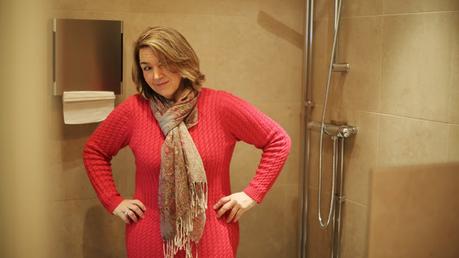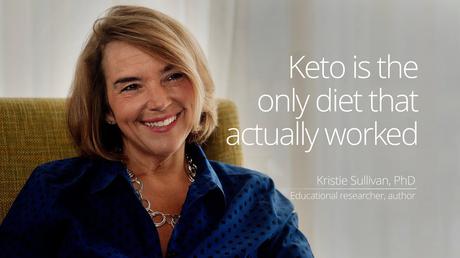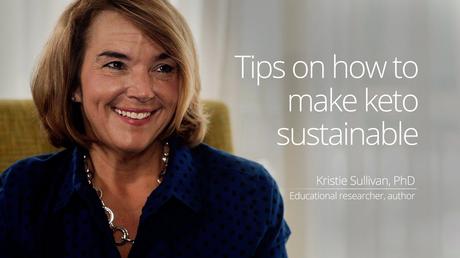
I first noticed the skin on her chest, just under the neck. It was dry and needed lotion. The rest of her face needed it too. I dabbed a few dots of my favorite moisturizer onto my finger and dotted it onto her temple. The jolt of the cool moisturizer connected my finger to the image in the mirror and the voice, my voice, asking, "What if she was someone you loved?"
Images of my infant children flashed as I remembered lovingly rubbing lotion onto their sweet, chubby arms and legs, watching their faces for smiles, knowing that each stroke was a way of caring for them. I was rubbing in moisturizer and love - connecting with them as I nurtured them. Love is not simply giving, but it is the act of giving.
"What if she was someone you loved?" For a moment I saw myself as I had seen my children. I needed me to be compassionate to my skin that is dry and aging. Instead, I typically just slap on moisturizer, wondering why my skin looks so bad as I look for blemishes, regretting my big nose and thin lips, and casting disdain on the wrinkles on my forehead. Those wrinkles seem to grow deeper each day. I've begun to avoid mirrors, as if rushing through a morning routine and not looking might help erase the lines.
When we love someone, we tend to see their flaws with compassion.
Here was a full-length mirror by the window that showed all of the rough stuff, and here was my own voice challenging me to interact with myself as if I was someone I loved. When we love someone, we tend to see their flaws with compassion. In this full-length mirror, I saw my tremendously large thighs, my wide waist, and my thick calves. Earlier in the day, as I folded laundry, I had picked up a pair of jeans and thought, "Gosh, these look small. Are you sure you can wear these? Why do these jeans look so small, but you look so big? Your thighs and hips are huge, but these jeans don't look so big." I had kept folding, thinking maybe I should start walking more frequently, and more consistently, and maybe I should see a doctor about whether I might have lipedema. There I was facing those thighs, that waist, and wondering, "What if she was someone you loved?"That person who wants to love me sometimes wonders, "Maybe your thighs aren't that big. You wear a jeans size smaller than 60% of American women. You don't wear the biggest size in the store." Yet, I know there are much smaller sizes in the stores, too. Sizes that I cannot wear. Moreover, there are women who wear the same size that I wear now who desperately want to lose weight. They begin their weight-loss journey weighing what I weigh now.
"But where did you start?" I remind myself that when I wore a size 24 - 7 sizes larger! - pants, I would have been delighted to be in the size I am now. A physician once reminded me that I'd spent most of my life weighing around 250 pounds (113 kilos). I'd shared with her that I wore a size 22 even in high school and had mainly weighed between 225-265 pounds (102-120 kilos) during the ages of 14 to 45, from adolescence to middle age. I had weighed over 150 pounds (68 kilos) as a 7-year old. She had told me, "For you, this weight is great. You are healthy." She also warned me, "You're going to have to work to stay at this weight. Your body thinks it is starving. It will fight to be back to 250 pounds." My resolve had flashed, "Well, if it can get used to 250, it can get used to 150 pounds, too." She never responded to my comment.
Since then, I've continued to remain faithful to a strict ketogenic diet. Most days, at least once each day, I am grateful for one or more of the fantastic advantages of significant weight loss and reduced pain and inflammation. I can do many things that I couldn't do before, and I celebrate being able to shop for smaller clothes. I go on and on about the amazing food, increased energy, and what it's like to no longer be morbidly obese in a society too quick to fat shame. I never miss an opportunity to share the miracle of how keto turned my struggle into my best life.
Yet every day, I struggle to treat myself like someone I love. If I could do that, how different my life might be. When I fold clothes, I might say, "Look at those tiny jeans! Oh girlie, you've come so far!" Maybe I might enjoy the touch of my own hands tenderly massaging moisturizer instead of gruffly, hastily, checking off one more task and checking off my inadequacies as I go.
"What if she was someone you loved?" I hope that I'd be kinder and more compassionate.
"What if she was someone you loved?" I hope that I'd be kinder and more compassionate. Perhaps I'd prioritize my needs more so that I'd stop working and start walking, maybe do yoga or pilates, and make more time for those in my life who do somehow manage to love "her". The mirror would remind me less often of how far I need to go and more often of how far I've come.The mirror would serve as a reminder of how I've beaten the odds and remind me less of how imperfect my body remains. Fewer than 30% of those who lose 100 pounds (45 kilos) or more keep the weight off for longer than a year. I suspect that treating myself like someone I love would make me more lovable and help me to be more loving towards others.
Yes, I'm stuck with this traveling-companion body, and I have to accept that it may never be the svelte shape of my dreams - a shape that is far easier to love. This body has tried to serve me well, and I suppose that if I can't be with the one I love, I should learn to love the one I'm with.



